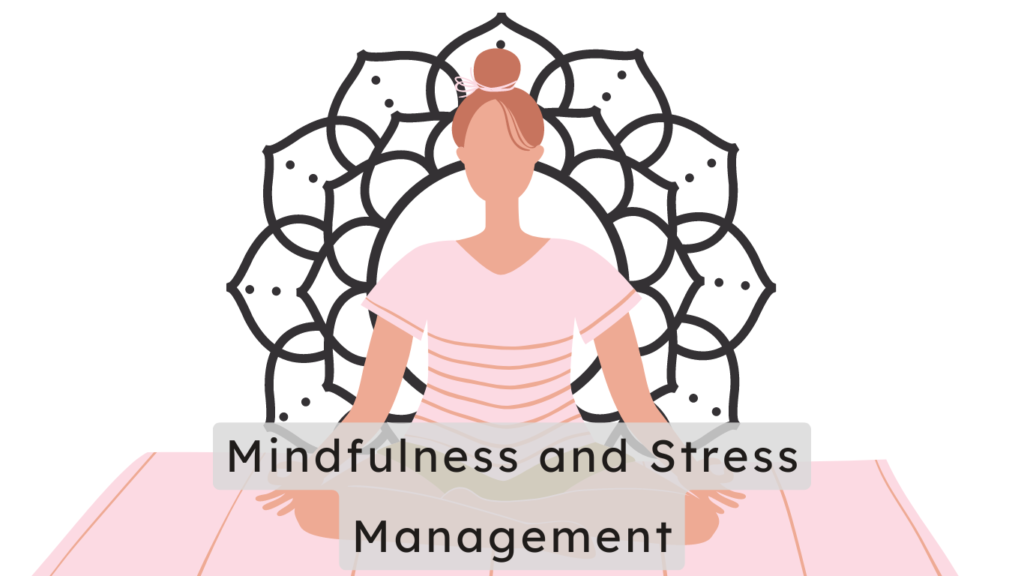
How mindfulness and stress management contribute to a healthy lifestyle.
In today’s fast-paced world, it’s easy to feel overwhelmed by stress. However, learning how to manage stress effectively is crucial for maintaining mental well-being and achieving balance in life. By incorporating mindfulness and stress management techniques into your daily routine, you can cultivate a healthier, calmer mind.
1. What is Mindfulness?
Mindfulness is the practice of staying fully present in the moment, without judgment. It involves being aware of your thoughts, emotions, and surroundings in a non-reactive way. Instead of getting caught up in worries about the past or future, mindfulness encourages you to focus on what is happening in the here and now.
Practicing mindfulness regularly has numerous benefits, including reducing anxiety, improving focus, and promoting emotional stability. It’s a powerful tool for stress management and maintaining mental health.
The Link Between Mindfulness and Stress Reduction
Stress often arises from ruminating about past events or worrying about future outcomes. When you’re constantly thinking ahead or revisiting past situations, your body stays in a heightened state of tension, which can lead to burnout. Mindfulness allows you to break this cycle by grounding yourself in the present moment.
Through mindful practices such as deep breathing, meditation, and body scanning, you can become more aware of the physical and emotional signs of stress. Once you recognize these signals, it becomes easier to manage and reduce stress. This is where mindfulness and stress management go hand in hand.
Mindfulness Techniques for Managing Stress
Incorporating mindfulness into your daily life doesn’t require drastic changes. Here are some simple yet effective practices that can help you manage stress and cultivate a healthier mind:
1. Mindful Breathing
Focus on your breath to calm your mind and body. Take slow, deep breaths, and pay attention to the sensation of air entering and leaving your lungs. This technique helps reduce anxiety and promotes relaxation, making it a powerful tool for both stress management and emotional balance.
2. Body Scan Meditation
A body scan is a mindfulness practice that involves paying attention to different parts of your body, one at a time. This technique helps release physical tension and can make you more aware of how stress affects your body. As you scan each area, focus on relaxing and releasing any discomfort.
3. Mindful Eating
Eating mindfully means paying full attention to the experience of eating—tasting each bite, noticing textures, and savoring flavors. This practice not only enhances your relationship with food but also encourages a slower, more thoughtful approach to meals, which can reduce the stress of overeating or unhealthy eating patterns.
4. Meditation
Regular meditation, even for just a few minutes a day, can have a profound impact on stress levels. It promotes relaxation and helps clear your mind of distractions. There are many forms of meditation, including guided meditation and mindful meditation, that can enhance stress control.
5. Mindful Walking
Walking meditation combines movement with mindfulness. As you walk, focus on each step, the sensations in your feet, and the rhythm of your movement. This practice can help clear your mind, reduce stress, and reconnect you with your surroundings.
Additional Stress Management Techniques
In addition to mindfulness, other stress management methods can contribute to a healthier mind:
1. Exercise
Physical activity is a natural stress reliever. Regular exercise, such as walking, jogging, or yoga, releases endorphins, which improve mood and help combat stress. Staying active is an essential part of maintaining mental well-being.
2. Time Management
Poor time management can increase stress and make you feel overwhelmed. Organizing your day, setting realistic goals, and taking regular breaks can improve productivity and reduce stress. Effective time management allows you to create balance and prevent burnout.
3. Social Connections
Building strong relationships and having a support system are important for mental health. Talking to friends, family, or a therapist can provide emotional relief and help you healthily process stress.
The Long-Term Benefits of Mindfulness and Stress Control
Practicing mindfulness and stress management regularly can lead to long-lasting benefits. Over time, you’ll become more resilient to stress, better able to handle challenges, and more in tune with your emotional and physical well-being. This, in turn, fosters a healthier mind, promoting overall mental clarity, emotional stability, and inner peace.
By incorporating these simple mindfulness techniques into your daily life, you’ll experience reduced stress levels and a greater sense of calm. Remember, managing stress is a lifelong journey, and the key to success is consistency.
Conclusion
Achieving a healthier mind requires a combination of mindfulness, effective stress management, and daily self-care practices. By focusing on the present moment, practicing relaxation techniques, and building positive habits, you can enhance your mental well-being and live a more balanced life.
Mindfulness and stress reduction aren’t quick fixes but ongoing practices that yield powerful results over time. Start small, be consistent, and watch as these habits transform your mental health, bringing calm and clarity into your everyday life.
